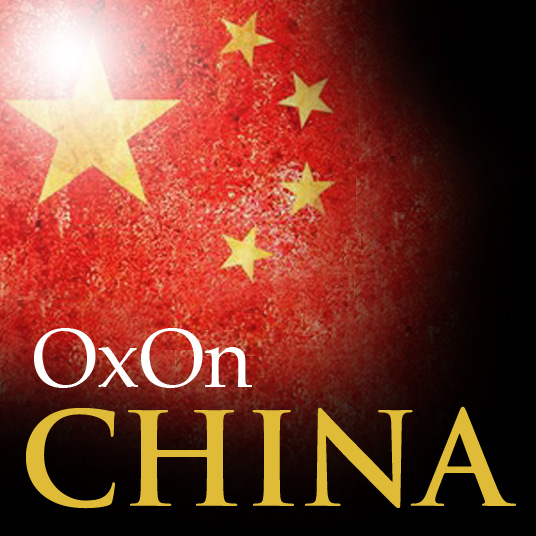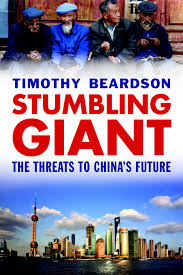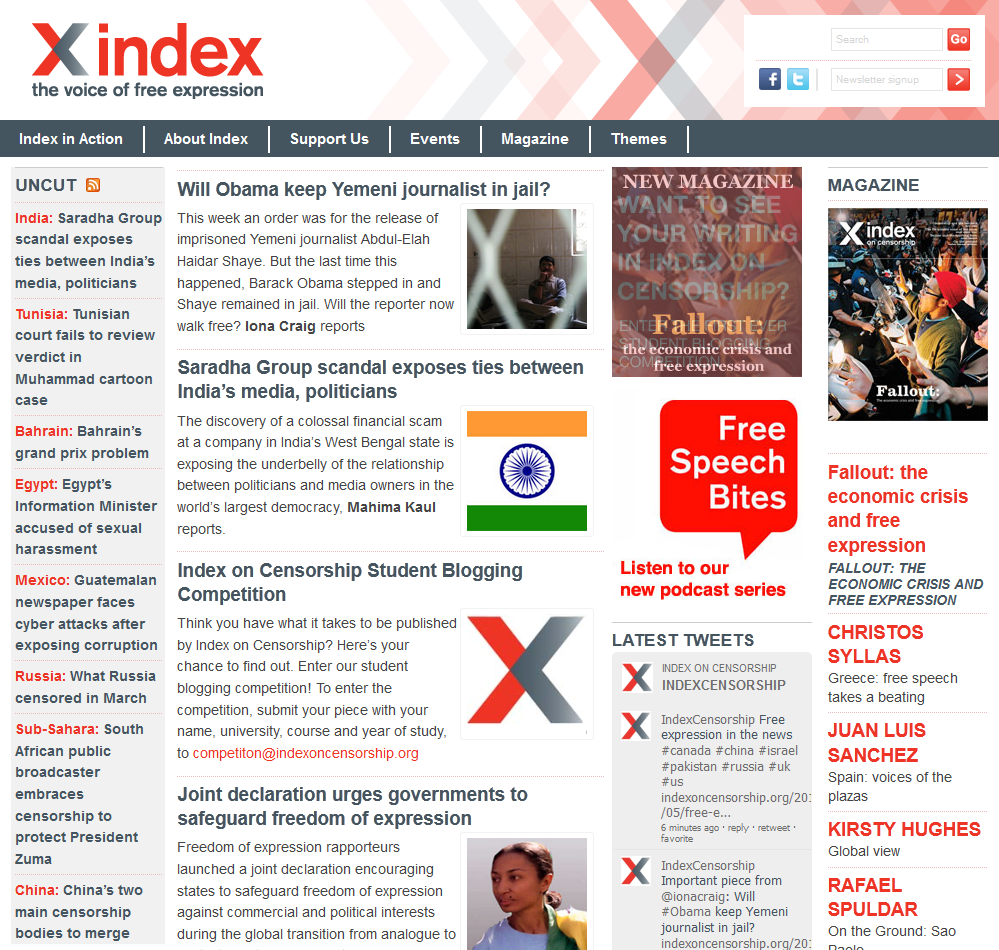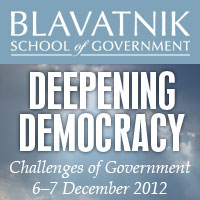
Politics In Spires Schools
The divide between subjects taught in the school classroom and university-level research is often exaggerated. Someone between 16-18 would be familiar with many themes addressed by Oxford’s Department of Politics and International Relations (DPIR). Still, some content, and especially research methods, would be completely new. Articles published in this series are part of a pilot scheme to bridge this divide. Recently, postgraduates from the DPIR visited schools to discuss its research programme with 16-18 year-old students taking courses in government and politics. The conversation pointed to many similarities. All A-level Politics courses aim to develop critical awareness of the nature of politics and increase understanding of the structures of authority and power. This is also true of University research. These …

Liberty, Liberalism and Surveillance: a Q&A with Quentin Skinner
One of England’s most distinguished scholars, Quentin Skinner is a leading historian of political thought and an outstanding advocate of a contemporary republican viewpoint. This interview with Richard Marshall of 3:AM sets out an accessible overview of a lifetime of work. We are grateful to 3:AM for letting us republish it as part of Politics and Spires’ Democractic Wealth series. Open Democracy, our series partner, added at the end two additional questions about corporate power, surveillance and freedom. Skinner’s answer with respect to surveillance is a strong, clear statement of how it is a threat to liberty. This is especially relevant to current affairs given the superficiality of official and in particular British media responses to the Snowden revelations published by the Guardian’s Glenn Greenwald about the programmes of total surveillance being attempted by US and UK secret services.
RM: You are known as a leading historian of political history and in particular the formation of ideas around human liberty. One of the key ideas you’ve written about is what you label ‘neo-Roman’ liberty’. This began back in Ancient Rome didn’t it, where freedom was contrasted with slavery, wasn’t it? Can you tell us what its distinctive traits are?
QS: The vision of personal freedom that interests me is articulated most clearly in the Digest of Roman Law, which is why I have wanted to describe its later manifestations as examples of ‘neo-Roman’ liberty. The fundamental distinction drawn at the outset of the Digest is between the liber homo, the free person, and the servus or slave. The law needed to begin with this contrast because law applies only to free persons, not to slaves. So one crucial question was: what makes a slave? The answer given in the legal texts is that a slave is someone who is in potestate, in the power of a master. The contrast is with someone who is sui iuris, able to act in their own right. Long before these argument were summarised in the legal texts, they had been elaborated by a number of Roman moralists and historians, above all Sallust, Livy and Tacitus. These writers were interested in the broader question of what it means to say of individuals – or even of whole bodies of people – that they have been made to live in the manner of slaves. The answer they give is that, if you are subject to the arbitrary will of anyone else, such that you are dependent on their mere goodwill, then you may be said to be living in servitude, however elevated may be your position in society. So, for example, Tacitus speaks of the servitude of the entire senatorial class under the Emperor Tiberius, so wholly subject were they to his lethal caprice.

Sino-Japanese War: A Q&A with Dr Rana Mitter, author of “China’s War with Japan, 1937-1945: The Struggle for Survival”
For the past few years, Professor Rana Mitter, one of the co-editors of our China blog, has been engaged in a research project aiming to better understand the process and relevance of the Sino-Japanese War between 1937 and 1945. Recently, he published his main findings in a volume that discusses the social, political and economic repercussions of the Japanese invasion and the Chinese response. We sat down with him to discuss it in more detail.
OxOn China (OC): What is the most important thing we need to know about the war with Japan?
Rana Mitter (RM): What distinguishes the Sino-Japanese war is that it really provides a breakpoint for Chinese modernity. A whole variety of longstanding traditions, patterns of landholding, and economic structures, changed forever. The fact that large swathes of Chinese territory were invaded and occupied was enormously disruptive. Local elites, for example, found themselves refugees, supplanted by an alien power. The political powerbase changed very suddenly, paving the way for the Communist revolution.

Economist Book review: China’s War with Japan, 1937–1945: The Struggle for Survival, by Oxford’s Rana Mitter
AS JAPANESE troops advanced on the Chinese capital of Nanjing in 1937, Zhou Fohai, a senior official in the Chinese government, wrote in his diary of the panic and fear consuming the city. He anticipated the destruction and its implications for his nation: “China will have no more history,” he wrote.
The devastation that the Japanese invasion would wreak was indeed shocking. But as Rana Mitter shows in his illuminating and meticulously researched new book about the Sino-Japanese war, not only did Chinese history not end with the fall of Nanjing, but in many ways the war helped to create modern China. It was the anvil on which the new nation was forged.
Other historians point to the arrival of British gunboats in the 1830s, when industrialising Europe collided with ancient China, as the dawn of China’s modern age. But Mr Mitter, a professor at Oxford University, believes that the country’s war with Japan was more important because it reduced China to its weakest state. “Suddenly the circumstances of war made the concept of the nation, and personal identification with it, more urgent and meaningful for many Chinese.”

China in the 21st century – not the superpower that some say it will be
This Wednesday at 5 PM, author Timothy Beardson will discuss his new book, “Stumbling Giant”, at the Institute for Chinese Studies. The book examines the challenges to China’s rise and discusses their impact and the policy prescriptions available to confront them.
The overwhelming majority of the literature in recent years has suggested that China will eventually occupy America’s recent role as the global superpower. While avoiding histrionic extremes such as eventual dominion or coming collapse, Mr Beardson disagrees, arguing that it is highly unlikely that China will become the world’s superpower in the 21st century.

Oxon China
A collaborative project between Politics in Spires and the Oxford China Centre, this blog provides academic analysis on the economic, political and cultural transformations taking place in China.

Index on Censorship student blogging competition
Index on Censorship is seeking entries for its student blogging competition. To enter, students should submit a 500-word blog post on the following topic: ‘What is one of the biggest challenges facing freedom of expression in the world today?’ This could cover a repressive regime, threats to digital freedom, religious clampdowns or attacks on media freedom, focusing on any region or country around the world. The competition is open to all first-year undergraduate students in the UK, and the winning entry will be determined by a panel of judges including the Index Chair. The winning entry will be published in the Index on Censorship magazine. This is a opportunity for talented student writers and activists to get professionally published and make contact …

Deepening Democracy
Deepening Democracy is an online series of articles, responding to the September 2012 report by the Global Commission on Elections, Democracy and Security, on improving the integrity of elections. The series is being curated by the Blavatnik School of Government and features contributions from students on the Master of Public Policy course at the School, as well as guest posts from Oxford and Cambridge scholars in politics and international relations.










